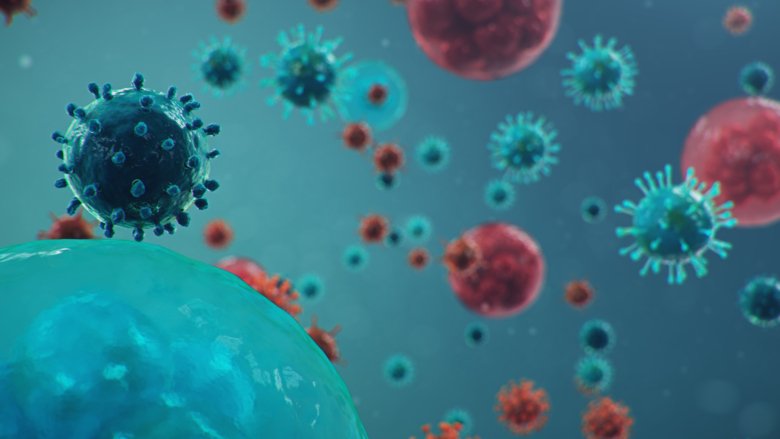Metabolic changes in immune cells linked to COVID-19 severity

The clinical outcome and severity of COVID-19 cannot be explained by a single factor like age, gender, or comorbidities. A new study from Karolinska Institutet in Sweden has identified potential determinants of COVID-19 severity at the cellular level using advanced systems biology analysis. The findings, published in the journal Cell Systems, offer insights into the metabolic tug-of-war in the human body and its association with disease severity.

“First, we stratified the patients based on their molecular signature as mild/moderate or severe COVID-19 and then we identified the metabolic rearrangement that was associated with disease severity,” says the study's first author Anoop Ambikan, a Ph.D. student at the Department of Laboratory Medicine, Karolinska Institutet.
The researchers used multi-omics, simultaneous measurement of numerous biomolecular variables, which enables comprehensive profiling of human biology. Blood samples from COVID-19 patients at different disease stages were analyzed using several advanced RNA-analysis techniques, including the analysis of quantitative changes in immune cells called mononuclear phagocytes. This plays an important role in the immune system’s ability to destroy the invading pathogen, and facilitate healing and repair.
Specific metabolic processes associated with COVID-19 severity identified
A virus relies on the host’s nutrients to replicate and reproduce. It modifies the flow of metabolites through a metabolic network for its own benefit. On the other hand, the host counteracts the virus through an inflammatory immune response.

“Our data suggest that in both mild/moderate and severe COVID-19 cases, the main metabolic arrangements occur in white blood cells called monocytes, in the central metabolic pathway called the TCA cycle, that is the energy source for the cells to perform their functions. Some metabolic reactions could be linked to the severity of the disease,” says the study's senior author Ujjwal Neogi, researcher at the Department of Laboratory Medicine, Karolinska Institutet. He continues:
“This metabolic rearrangement leads to a dysfunctional immune response, which can progress to severe disease if not controlled spontaneously. A potential therapeutic strategy in severe COVID-19 by altering the dysregulated metabolic pathways by metabolic modulators could be to rescue the immune-response in white blood cells.”
The study was supported by grants from the Swedish Research Council, Karolinska Institutet Foundation and Funds, The Center for Innovative Medicine (CIMED) and the Åke Wiberg Foundation. The authors declare no competing interests.
Publication
“Multiomics personalized network analyses highlight progressive disruption of central metabolism associated with COVID-19 severity”, Anoop T. Ambikan, Hong Yang, Shuba Krishnan, Sara Svensson Akusjärvi, Soham Gupta, Magda Lourda, Maike Sperk, Muhammad Arif, Cheng Zhang, Hampus Nordqvist, Sivasankaran Munusamy Ponnan, Anders Sönnerborg, Carl Johan Treutiger, Liam O’Mahony, Adil Mardinoglu, Rui Benfeitas, Ujjwal Neogi. Cell Systems, online 7 July 2022, doi: 10.1016/j.cels.2022.06.006.
